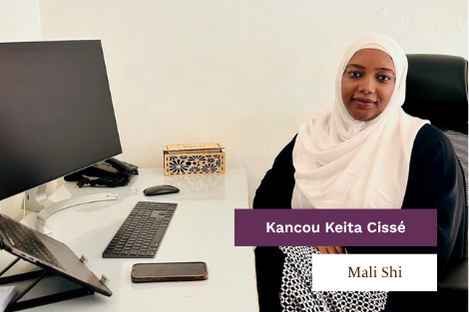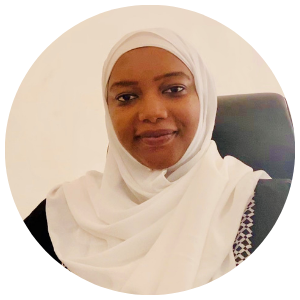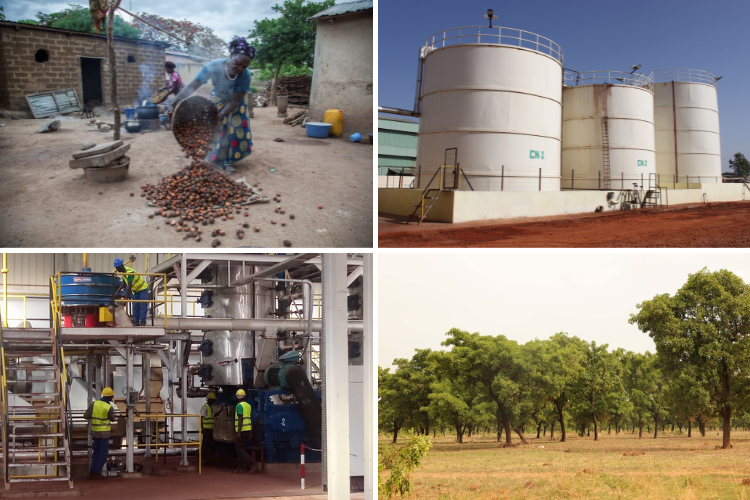Portrait entrepreneur : Meet Kancou Keita Cissé, Managing Director of Mali Shi
Submitted by admin on Mon, 07/07/2025 - 13:13
" You have to do it because it's hard, the impact is greater. We created Mali Shi with the idea of building a profitable, sustainable and impactful business. And I sincerely believe that this is possible here in Mali, as it is in other West African countries!"
I&P met with Kancou Keita Cissé, Managing Director of Mali Shi, the first industrial shea processing unit in Mali. Their ambition: to structure the sector, empower thousands of women collectors, create local value and, above all, prove that it is possible to conciliate economic performance and social impact in a context considered too risky.
 Can you tell us a bit about your background?
Can you tell us a bit about your background?
 I worked mainly in a chartered accountancy firm before starting my entrepreneurial career. I was born and raised in Mali, and after the baccalaureate I went to Paris to study at the Université Paris Dauphine, where I graduated with a Master's degree in accounting, control and audit. I then began my career at PwC, before returning to Mali in 2011 to join S.E.C Diarra, Mali's leading chartered accountancy firm, where I also obtained my chartered accountancy diploma. For a long time, I was one of those who advised and supported entrepreneurs before moving on to the other side. In 2016 to be exact, when I joined the Omnium Group as Finance Director. And that's how I helped set Mali Shi up.
I worked mainly in a chartered accountancy firm before starting my entrepreneurial career. I was born and raised in Mali, and after the baccalaureate I went to Paris to study at the Université Paris Dauphine, where I graduated with a Master's degree in accounting, control and audit. I then began my career at PwC, before returning to Mali in 2011 to join S.E.C Diarra, Mali's leading chartered accountancy firm, where I also obtained my chartered accountancy diploma. For a long time, I was one of those who advised and supported entrepreneurs before moving on to the other side. In 2016 to be exact, when I joined the Omnium Group as Finance Director. And that's how I helped set Mali Shi up.
The Omnium Group, historically active in industry (notably battery manufacturing), wanted to diversify, whilst creating value from local raw materials. We were importing raw materials to be able to process them locally, so it was important for us at the time to do the opposite, to add value to Mali's products. A study of several agricultural sectors, which we carried out with ClassM, revealed the strong potential of shea, a raw material that is very present in Mali but largely exported in its raw state. We had the idea, the product, now it was time to take the plunge: Mali's first industrial shea kernel processing plant rose from the ground in 2020.
Today, 5 years after its launch, how is your business developing?
These were certainly not the easiest years to launch and develop a business. Between Covid and the political and economic situation in Mali, with closed borders and blocked financing, everything was more complicated. But the situation has changed and is now more favorable again. Today, we have 97 permanent employees and around thirty day laborers. We have a processing capacity of 100 tonnes of almonds a day, or around 25,000 tonnes a year.
For supply, we work with 12,000 women collectors in the Kayes, Koulikoro, Ségou and Sikasso regions, grouped into cooperatives. This relationship has been formalized and structured by formal contracts, guaranteeing collectors a stable income. We train the cooperatives in good collection and management practices, and provide them with equipment - sometimes thanks to public or associative partners - such as basins, tricycles for transport or storage warehouses.
Our impact is found on several other levels, with the creation of value from local products, the creation of formal jobs and the empowerment of collectors, the factory also produces shea cakes which serve as the basis for better quality and low-cost animal feed for breeders in the region, for the manufacture of organic fertilizer, but which are also transformed into shea cake briquettes for domestic use. It is an excellent alternative to firewood and helps combat deforestation.
How did you team up with I&P?
We met with I&P twice. The first time was in 2020, but we weren't yet fully aligned. Then in 2022, with Landry Parkouda and Sébastien Boyé. I&P stepped in at a critical time, after the plant had been built, in a difficult context: Covid, ECOWAS sanctions against Mali... Few players were ready to invest in Mali, and I&P took the risk. It's a demanding but rewarding partnership. I&P is very much involved in governance, with a role on the board of directors, but also in operational monitoring. We have frequent exchanges that help us to challenge ourselves, take a step back and adjust our strategy.
For the record, after due diligence, negotiations and the formalization of agreements, we were expecting disbursement in September 2023. But there were unforeseen circumstances and things to sort out. In the end, we received the funds over the Christmas period. A lovely gift and a relief for all those who worked so hard on this project!
What is your view of entrepreneurship in Mali?
It's a difficult environment, but one rich in opportunities. You have to dare, you have to be tenacious, but you also have to know how to adapt. It's because it's difficult that you have to do it, because the impact is that much greater. We created Mali Shi with the idea of building a profitable, sustainable and impactful business. And I sincerely believe that this is possible here in Mali, as it is in other West African countries!

